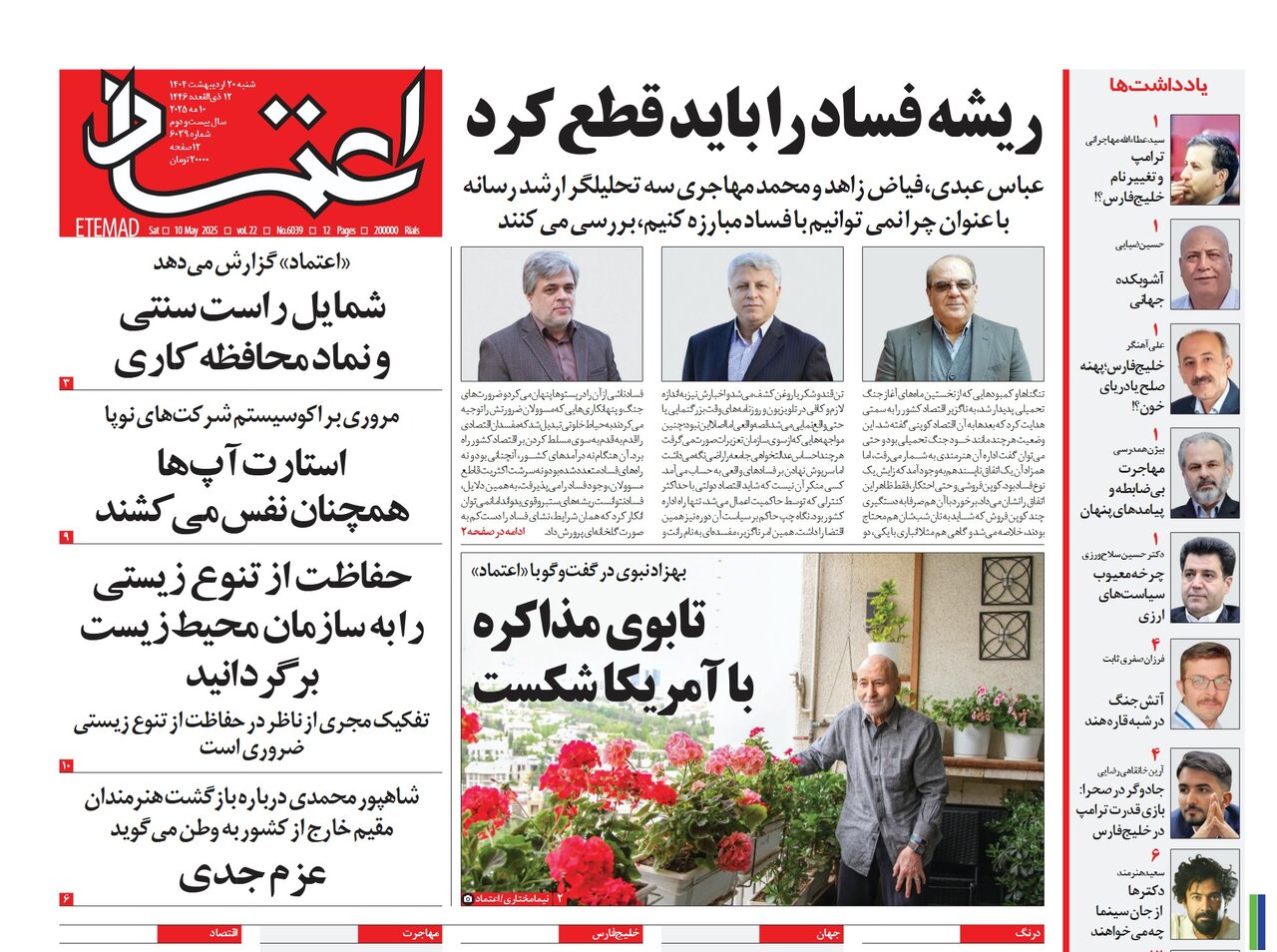A calm Red Sea would prop up diplomacy

TEHRAN - In a commentary, Etemad discussed Trump’s possible agreement with Yemen’s Ansarallah and wrote: This agreement is a hidden contractual exchange that Ansarullah had proposed a few weeks ago, according to which the Yemeni group would stop attacking commercial ships, and the United States would stop its airstrikes on Yemen (Israel only targets vessels to and from Israel in response to its genocidal acts in Gaza).
According to some analysts, although this agreement seems to be reciprocal, it will have wide-ranging geopolitical consequences, in a way that not only reduces the risk of escalating the crisis in a sensitive maritime corridor but may also lead to accelerating and strengthening the nuclear diplomacy between Tehran and Washington. This ceasefire may be a precursor to more comprehensive negotiations between Tehran and Washington, especially in a situation where Iran insists that it will only negotiate about its nuclear program. Moreover, for Iran, supporting a decrease in maritime tensions is in line with several strategic goals, especially in a situation where Tehran is still under U.S. sanctions, and stabilizing the situation in the Red Sea could provide a calm atmosphere for diplomacy.
Siasat-e-Rooz: Propaganda with fake MEK documents
Siasat-e-Rooz devoted its article to the false claim of Fox News. The paper said: Fox News has claimed to have discovered new secret nuclear facilities in Iran by publishing satellite images from the terrorist group MEK (also called MKO). The re-publishing of fake information by Fox News and sources such as MEK reveals two simultaneous crises: first, the crisis of legitimacy of global Zionism, which, following its inability to confront the Palestinian resistance, is spreading lies against attacking Iran to divert public opinion; and second, the strategic desperation of the Israeli regime in its inability to manipulate regional diplomacy, which has now coincided with the U.S. ceasefire agreement with Yemen and the positive trend of Iran's nuclear negotiations. Using a group like the MEK, which is not credible even for Western countries, shows that the media campaigns against Iran have reached the end of reliable options. The claim of a new nuclear site is actually a nervous reaction to Iran's rising regional weight and Tehran's role as an effective player in regional multipolar interactions.
Sazandegi: Dangerous plot against Iranian identity
In an explanation, Sazandegi addressed Trump’s political bias. It wrote: Allowing Trump to change the name of the Persian Gulf, which is related to the historical identity of Iranians, is a dangerous plot that goes beyond confrontation with the Islamic Republic and Iran’s national sovereignty. Trump is entering another historical confrontation that wants to erase the identity and existential nature of a nation. If Trump and his team are seeking negotiations and peace in the Middle East, they should not put nations against each other, because launching war against nations and their identities will bear no result other than threatening peace, promoting terrorism and violence. Governments like Saudi Arabia and Oman have chosen the path of economic development and are seeking a secure world and the Middle East. Therefore, their mission is more important than ever before, and they should not allow a few small regional powers to fuel tension in the Middle East by creating ethnic and religious hatred.
Ettelaat: Lifting sanctions is essential
Ettelaat examined the Iran-U.S. talks in an interview with Morteza Afgheh, a macroeconomic expert. He said: The conditionality of the national economy is a sign of a serious 'disease’. Governing the country has become more difficult than ever before, and the country's officials have understood this well. We are in a situation where we will not find a way out of the current situation without lifting the sanctions. Our economy is currently in a delicate situation, and an important part of the conditionality of our economy is due to this situation. The positive point is that the other side (the U.S.) also needs an agreement with Iran, and Trump has shown that resolving the nuclear issue is important to him. For this reason, despite the actions of some hawkish elements in the U.S. Republican Party, a final agreement will eventually be reached. If the talks are successful, most indicators will suddenly become positive. However, the main issue is which direction the decision-making system will take the country after the agreement. It is hoped that the authorities will seize the opportunity of a possible agreement and put the economy on a different path
